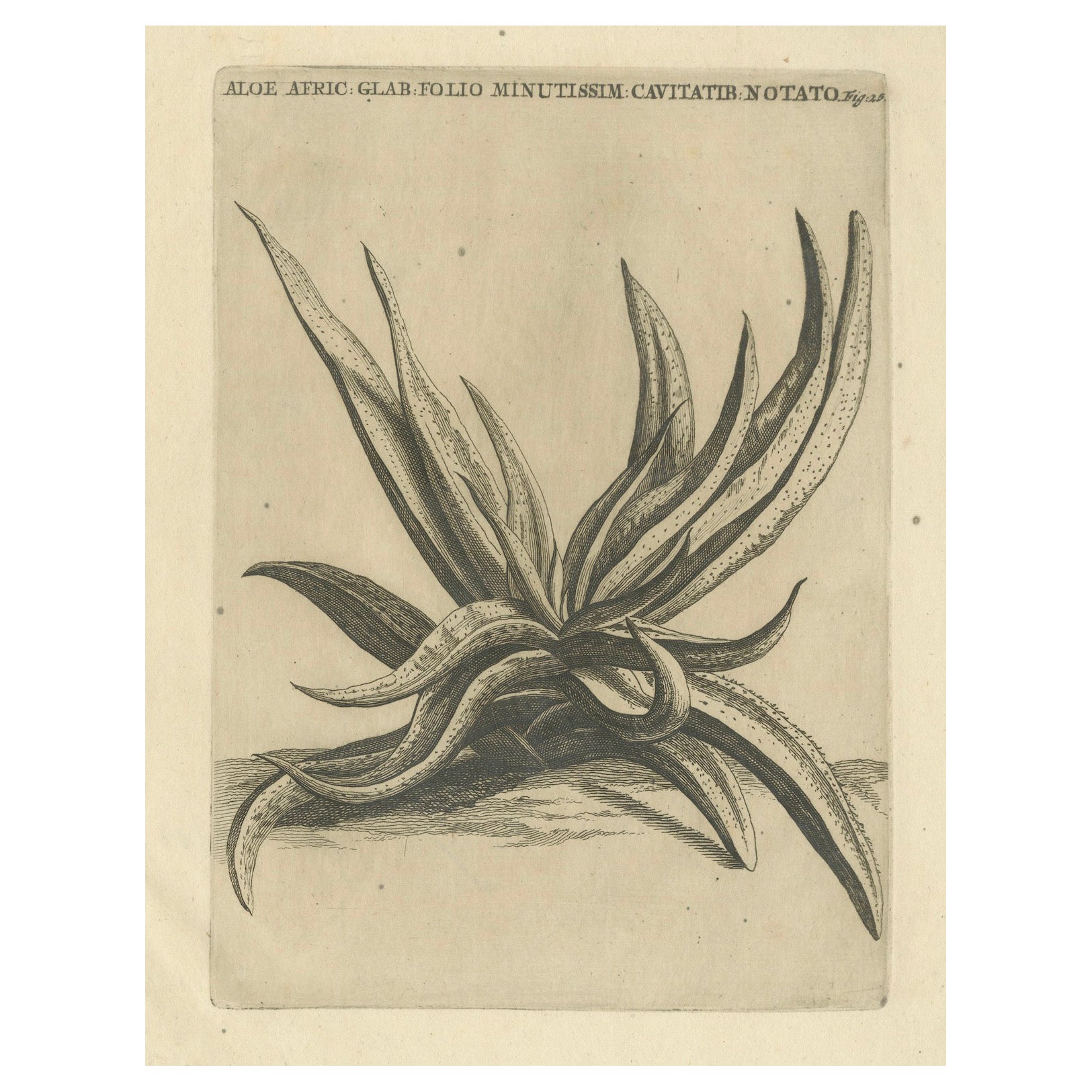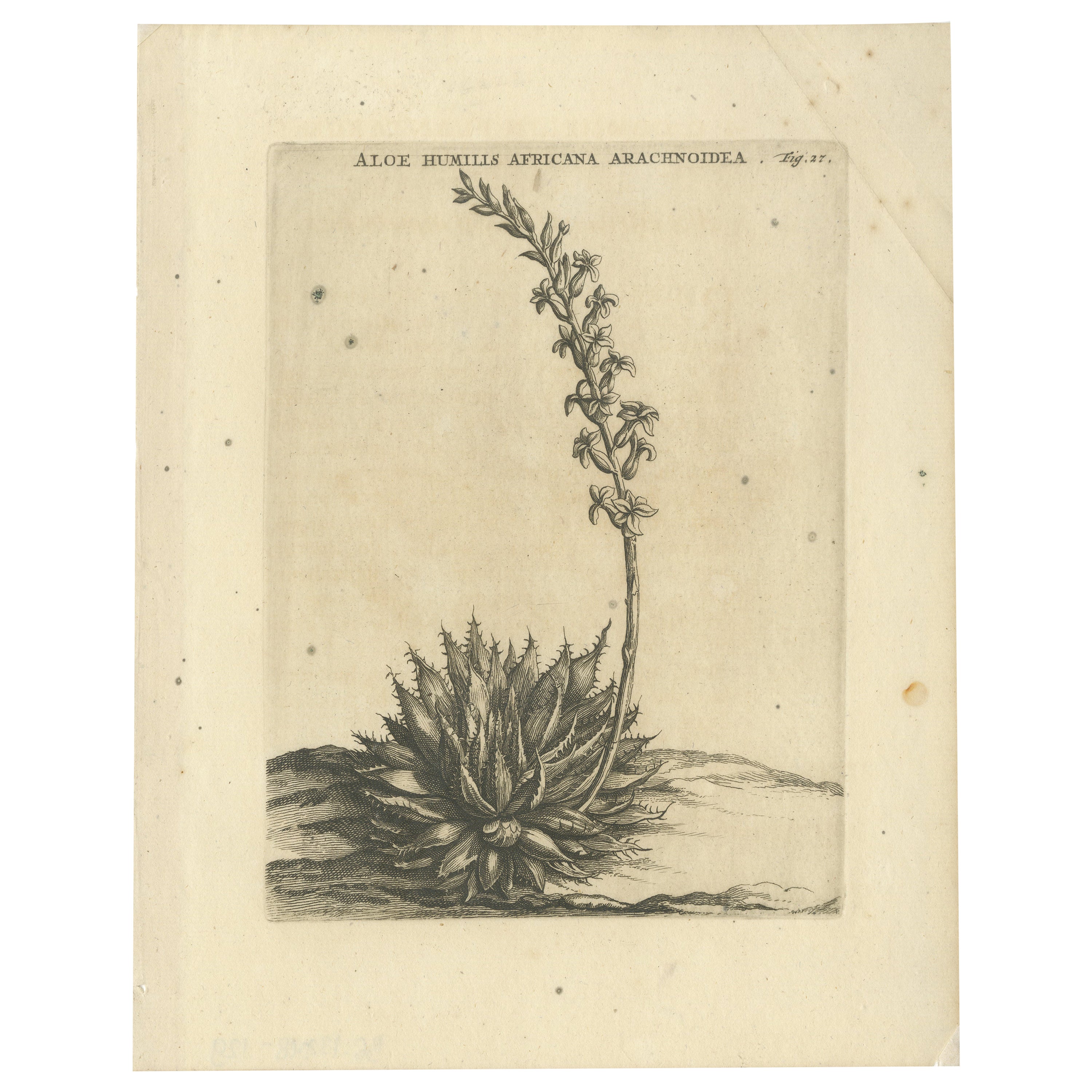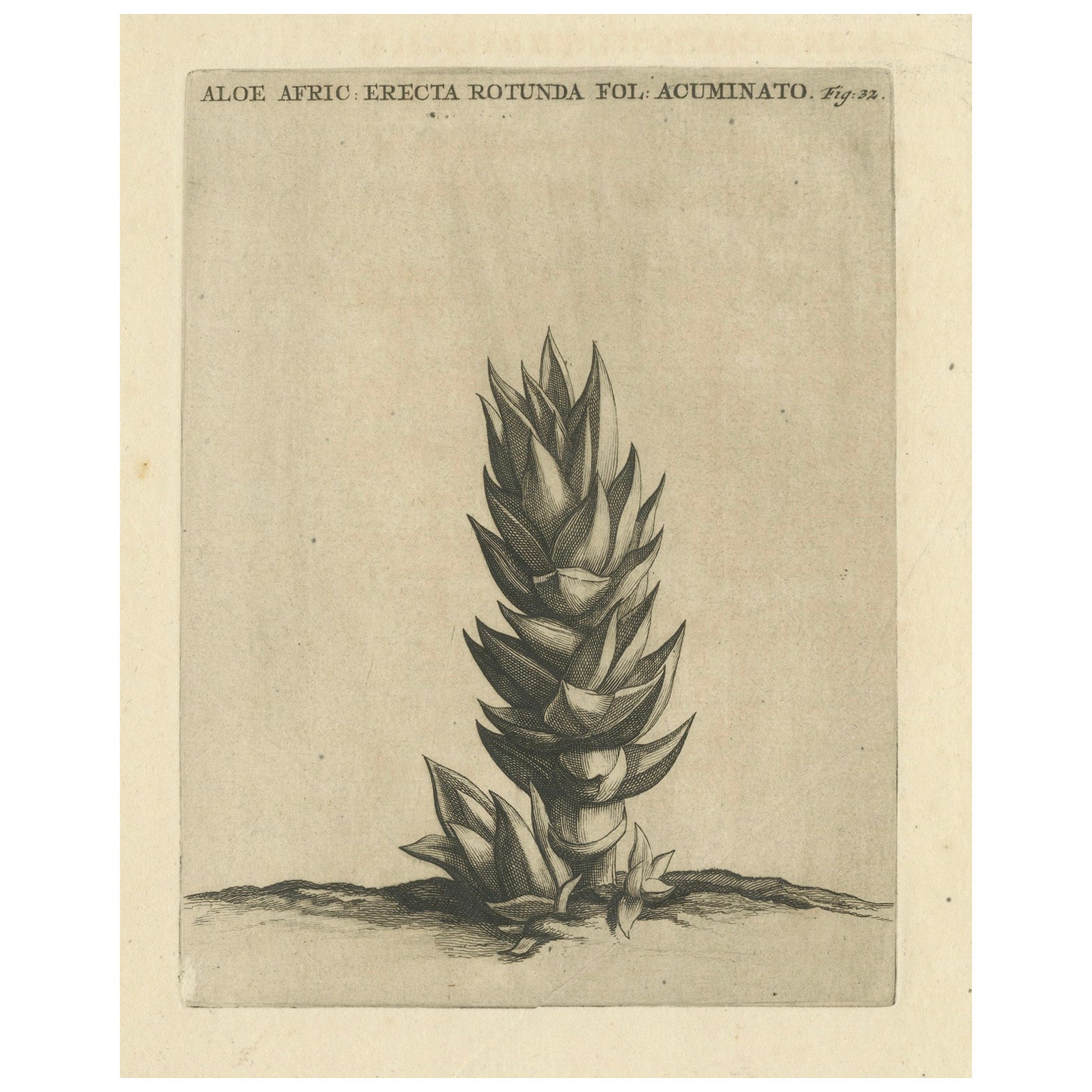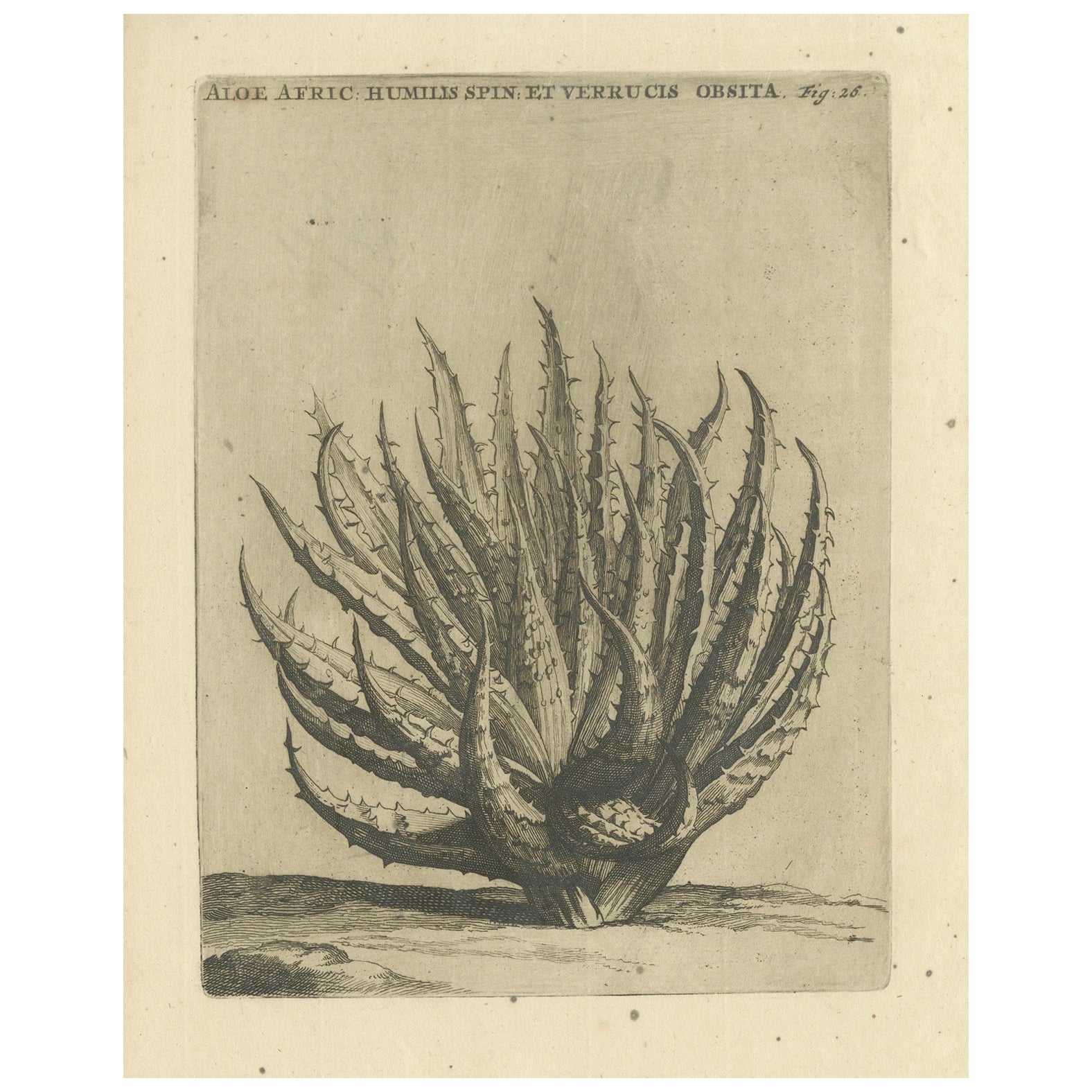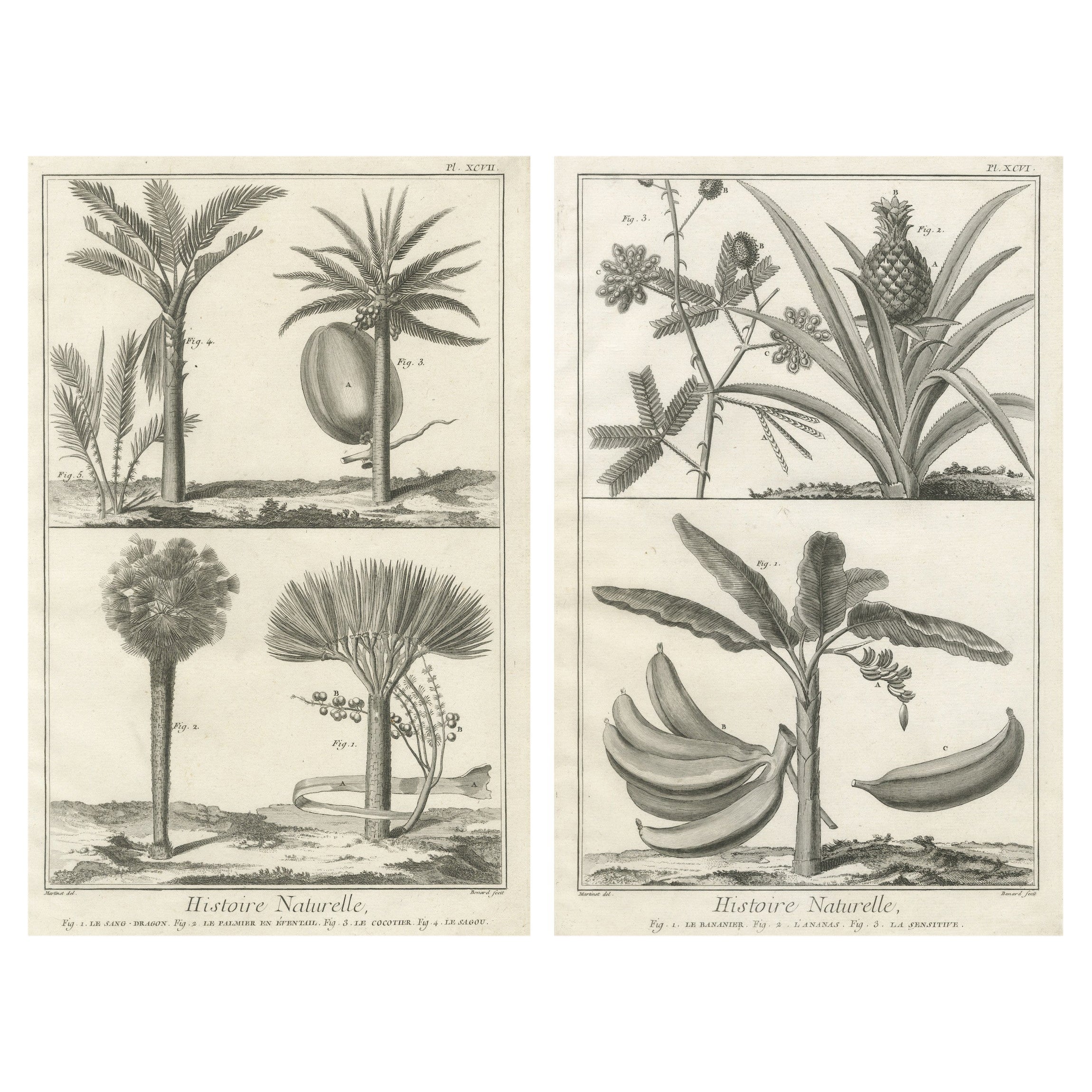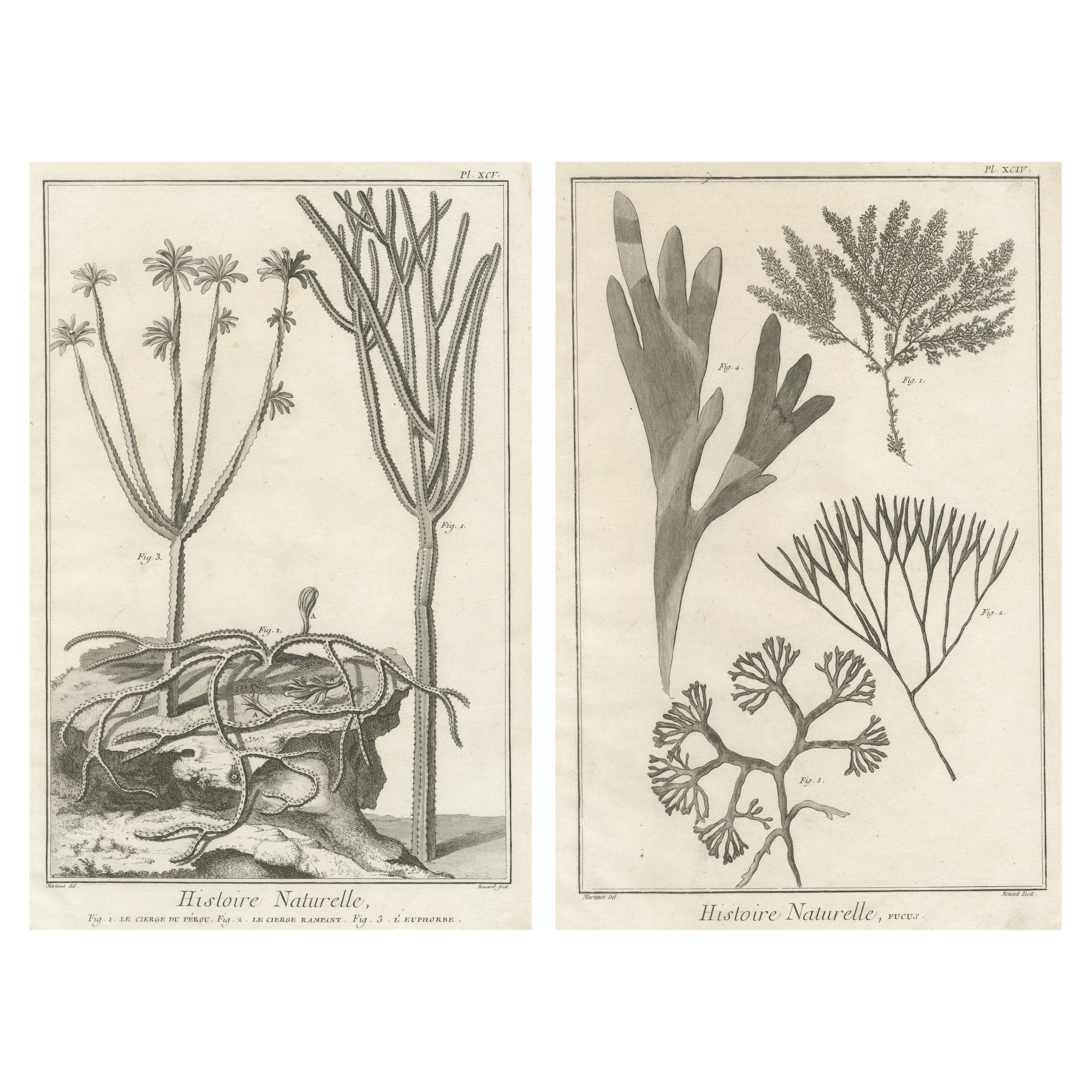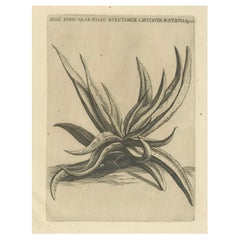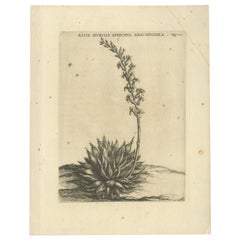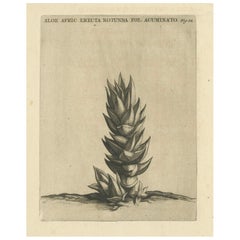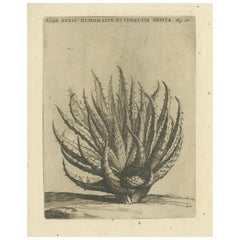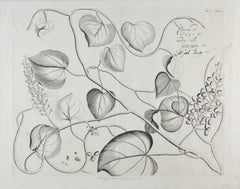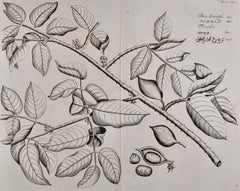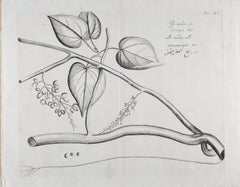Items Similar to Coffee, Aloe, and Date Trees – Exotic Botanical Engraving, Dutch, c.1730
Want more images or videos?
Request additional images or videos from the seller
1 of 10
Coffee, Aloe, and Date Trees – Exotic Botanical Engraving, Dutch, c.1730
$505.76
£374.20
€420
CA$699.30
A$767.75
CHF 400.53
MX$9,290.78
NOK 5,020.08
SEK 4,730.23
DKK 3,197.89
About the Item
Coffee, Aloe, and Date Trees – Exotic Botanical Engraving, Dutch, c.1730
This large and finely detailed copper engraving showcases three important tropical and subtropical plants: the coffee tree ("Een Koffy Boom"), the aloe plant ("Een Aloe Plant"), and the date palm ("Een Dadel Boom"). The scene is beautifully rendered with mountainous terrain in the background and traditional huts nestled in the landscape, evoking the exotic locales where these plants flourished and were cultivated in the early modern period.
The print was published in the early 18th century as part of a Dutch encyclopedic or travel volume, likely aimed at educating readers about the flora of foreign regions tied to colonial trade and exploration. Coffee and dates were of vital economic and cultural importance to the Arab world, Africa, and Asia, while the aloe plant was prized for its medicinal qualities. Each plant is drawn with botanical accuracy, standing upright in a symmetrical layout, making this an ideal print for framing as a natural history or ethnographic display.
The Dutch captions beneath each tree enhance the educational value of the print. The vertical aloe spike contrasts strikingly with the broad canopies of the coffee and date trees, emphasizing the diversity of plant forms. This style of plant portraiture, combining scientific interest with artistic design, reflects the Enlightenment-era fascination with cataloging nature.
Condition: Very good condition with strong impression. Central folds as issued, with some faint creasing along the fold and minor edge wear at the right margin. Slight age-toning, but no tears or repairs. The plate mark is intact and crisp.
Framing tips: Due to its wide format and elegant balance, this engraving would suit a horizontal frame in warm wood tones or classic black. Use a light cream or soft tan mat to bring out the warm tones in the aged paper, and opt for museum glass to reduce glare and protect the delicate lines.
Technique: Copperplate engraving
Maker: Anonymous Dutch engraver, Netherlands, circa 1730
- Dimensions:Height: 7.68 in (19.5 cm)Width: 12.21 in (31 cm)Depth: 0.01 in (0.2 mm)
- Materials and Techniques:Paper,Engraved
- Place of Origin:
- Period:1730-1739
- Date of Manufacture:circa 1730
- Condition:Condition: Very good condition with strong impression. Central folds as issued, with some faint creasing along the fold and minor edge wear at the right margin. Slight age-toning, but no tears or repairs. The plate mark is intact and crisp.
- Seller Location:Langweer, NL
- Reference Number:Seller: BG-11491-71stDibs: LU3054346155512
About the Seller
5.0
Recognized Seller
These prestigious sellers are industry leaders and represent the highest echelon for item quality and design.
Platinum Seller
Premium sellers with a 4.7+ rating and 24-hour response times
Established in 2009
1stDibs seller since 2017
2,641 sales on 1stDibs
Typical response time: <1 hour
- ShippingRetrieving quote...Shipping from: Langweer, Netherlands
- Return Policy
Authenticity Guarantee
In the unlikely event there’s an issue with an item’s authenticity, contact us within 1 year for a full refund. DetailsMoney-Back Guarantee
If your item is not as described, is damaged in transit, or does not arrive, contact us within 7 days for a full refund. Details24-Hour Cancellation
You have a 24-hour grace period in which to reconsider your purchase, with no questions asked.Vetted Professional Sellers
Our world-class sellers must adhere to strict standards for service and quality, maintaining the integrity of our listings.Price-Match Guarantee
If you find that a seller listed the same item for a lower price elsewhere, we’ll match it.Trusted Global Delivery
Our best-in-class carrier network provides specialized shipping options worldwide, including custom delivery.More From This Seller
View AllBotanical Engraving of African Aloe from Commelin’s "Praeludia Botanica", 1703
Located in Langweer, NL
African Aloe Botanical Engraving from Caspar Commelin’s "Horti Medici Amstelaedamensis," 1706
This engraving is possibly a botanical illustration from Caspar Commelin's "Praeludia B...
Category
Antique Early 1700s Prints
Materials
Paper
$279 Sale Price
20% Off
Aloe Humilis Africana Botanical Engraving from Caspar Commelin's Work, 1706
Located in Langweer, NL
Aloe Humilis Africana Botanical Engraving from Caspar Commelin's Work, 1706
This engraving is possibly a botanical illustration from Caspar Commelin's "Praeludia Botanica," publishe...
Category
Antique Early 1700s Dutch Prints
Materials
Paper
$279 Sale Price
20% Off
Botanical Engraving of Aloe Afric Erecta from Caspar Commelin's Work, 1706
Located in Langweer, NL
Botanical Engraving of Aloe Afric Erecta from Caspar Commelin's Work, 1706
This engraving is likely a botanical illustration from Caspar Commelin's "Praeludia Botanica," published i...
Category
Antique Early 1700s Prints
Materials
Paper
$279 Sale Price
20% Off
Aloe Afric Humilis Botanical Engraving from Caspar Commelin’s Work, 1706
Located in Langweer, NL
Aloe Afric Humilis Botanical Engraving from Caspar Commelin’s Work, 1706
This engraving is possibly a botanical illustration from Caspar Commelin's "Praeludia Botanica," published i...
Category
Antique Early 1700s Prints
Materials
Paper
$279 Sale Price
20% Off
Decorative Antique Botanical Prints – Exotic Tropical Plant Engravings, 1770
Located in Langweer, NL
Pair of Antique Engravings of Exotic Tropical Plants from Diderot’s Encyclopédie, ca. 1770
A fine pair of copperplate engravings from Denis Diderot and Jean le Rond d’Alembert’s mon...
Category
Antique 1770s French Prints
Materials
Paper
Decorative Antique Prints – Marine Plants and Cactus Engravings, c.1770
Located in Langweer, NL
Pair of Antique Engravings of Marine Plants and Cactus Forms from Diderot’s Encyclopédie, ca. 1770
A pair of copperplate engravings from Denis Diderot and Jean le Rond d’Alembert’s ...
Category
Antique 1770s French Prints
Materials
Paper
You May Also Like
Citamerdu (Amrita) Plant: 17th Century Botanical Engraving by Hendrik van Rheede
Located in Alamo, CA
This is a rare 17th century engraving of a plant entitled "Citamerdu" by the Dutch botanist Hendrik van Rheede tot Drakenstein, plate 21 from his 'Hortus Indicus Malabaricus' (Garden of Malabar), published in Amsterdam in 1686 by Johann van Someren. The engraving depicts the Citamerdu plant, also known as Tinospora cordifolia plant or Amrita and Guduchi. It is a deciduous plant with heart-shaped leaves, greenish flowers, and pea-shaped fruits. Rheede's 19th century publication featured illustrations of exotic plants and fruits labelled with script in the upper right corner in Latin, Malay, Arabic, and Sanskrit. Hortus Indicus Malabaricus is believed to be the earliest comprehensive published work on the flora of Asia and the tropics. The 17th century treatise featured important illustrations of 740 plants of the region, including Indian medicinal plants.
The engraving is printed on 17th century laid, chain-linked paper, watermarked with an elaborate crown design. The sheet measures 15.75" high by 18.75" wide. There is a central fold, as issued. There are a few small spots, but the print is otherwise in excellent condition.
There are additional Rheede botanical engravings from his 'Hortus Indicus Malabaricus' publication that are listed on my 1stdibs storefront and online website. These would make for an impressive display grouping. A discount is available for purchase of two or more of the prints.
Hendrik Adriaan van...
Category
Late 17th Century Naturalistic Landscape Prints
Materials
Engraving
Fever Nut Plant "Ban Caretti": A 17th Century Engraving by Hendrik van Rheede
Located in Alamo, CA
This is a 17th century engraving of a fever or bonduc nut plant entitled "Ban Caretti" by Hendrik van Rheede tot Drakenstein, plate 20 from his 'Hortus Indi...
Category
Late 17th Century Naturalistic Landscape Prints
Materials
Engraving
Aloe Plant Engraving
By Johann Wilhelm Weinmann
Located in New York, NY
Original engraving by Johann Wilhelm Weinmann from "Phytanthosa Iconographia." Ratisbon, 1737-1745.
This plate: N. 304 Caranna.[Palm Tree].
Mezzotint engraving printed in color and f...
Category
Early 18th Century Prints and Multiples
Materials
Laid Paper
Pee-amerdu Plant: A Rare 17th Century Botanical Engraving by H. van Rheede
Located in Alamo, CA
This is a rare 17th century engraving of a plant entitled "Pee-amerdu" by the Dutch botanist Hendrik van Rheede tot Drakenstein, plate 19 from his 'Hortus Indicus Malabaricus' (Garden of Malabar), published in Amsterdam in 1686 by Johann van Someren. The engraving depicts the Pee-amerdu plant, a large leafed plant climbing plant off the Malabar Coast in India. The plant is noted for its medicinal uses. It may be related to Tinospora species. Rheede's 19th century publication featured illustrations of exotic plants and fruits labelled with script in the upper right corner in Latin, Malay, Arabic, and Sanskrit. Hortus Indicus Malabaricus is believed to be the earliest comprehensive published work on the flora of Asia and the tropics. The 17th century treatise featured important illustrations of 740 plants of the region, including Indian medicinal plants.
The engraving is printed on 17th century laid, chain-linked watermarked paper. The sheet measures 14.88" high by 18.75" wide. There is a central fold, as issued. There are a few faint smudges, a spot in the upper margin and there is minimal irregularity of the left edge of the paper where the print was previously bound in the 17th century publication. The print is otherwise in very good condition.
There are additional Rheede botanical engravings from his 'Hortus Indicus Malabaricus' publication that are listed on my 1stdibs storefront and online website. These would make for an impressive display grouping. A discount is available for purchase of two or more of the prints.
Hendrik Adriaan van Rheede tot Drakenstein...
Category
Late 17th Century Naturalistic Landscape Prints
Materials
Engraving
Johann Weinmann: 18th Century Engraving of an aloe in a decorative pot.
Located in Richmond, GB
Hand-coloured mezzotint engravings of decorative urns with aloes and cacti from: ""Phytanthoza Iconographia"", c1739, presented in hand- made, parcel-gilt, ebonised and decalcomania...
Category
18th Century Figurative Drawings and Watercolors
Materials
Watercolor, Mezzotint
Johann Weinmann: 18th Century Engraving. Aloe in a Decorative pot.
Located in Richmond, GB
PRICE IS FOR EACH FRAMED PRINT.
Hand-coloured mezzotint engravings of decorative urns with aloes and cacti from: ""Phytanthoza Iconographia"", c1739, presented in hand- made, parce...
Category
18th Century Figurative Drawings and Watercolors
Materials
Watercolor, Mezzotint
More Ways To Browse
Japanese Paper Fan
Japanese Pheasant
Japanese Porcelain Geisha
Japanese Root Wood
Japanese Scroll Flower
Japanese Shell Art
Japanese Sword Furniture
Jean Roger Paris
Jiaqing Porcelain
Karl Muller
Kodak Vintage
Lalique Stopper
Lane Cedar Chest
Large Block Prints
Large Ceramic Cat
Large Chinese Foo Dogs
Large Giraffe Sculpture
Large Menorah
